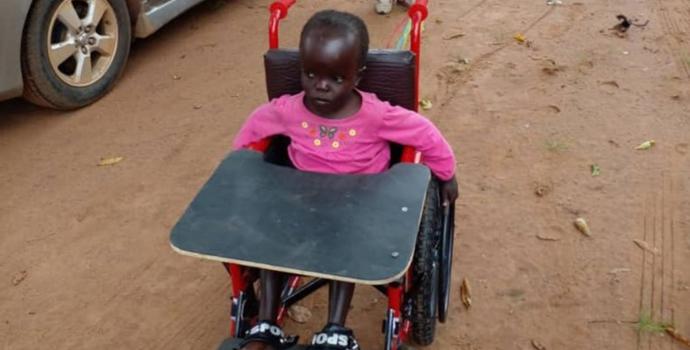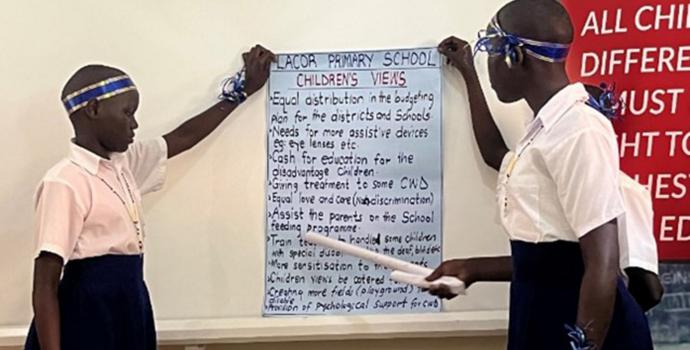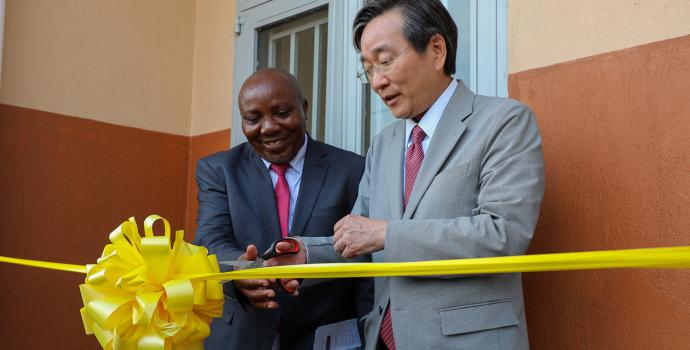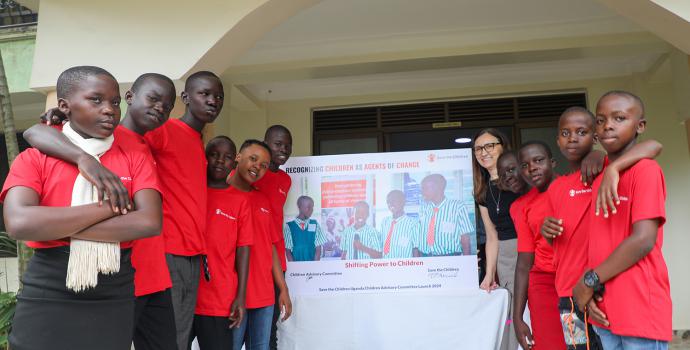We are ensuring disability doesn’t stop children from enjoying their childhood

Moses can now move and play with his friends freely because of the wheelchair he received.
Ten-year-old Moses was born at home in northern Uganda but his mother rushed him to hospital not long after his birth after noticing he was a different baby from her older child.
At the hospital, Moses was assessed by a doctor who later informed his parents that their son had been born with Spina-Bifida, a birth defect that occurs when the baby’s spine and spinal cord don't form properly. On further assessing the baby, it was also discovered that he also had hydrocephalus,a condition which causes excess buildup of fluid in the brain and results in developmental, physical, and intellectual impairments.
Like many families, Moses’s father could not afford medical bills to enable his son get the appropriate medical attention which further made Moses’ health to detoriate. Due to the hydrocephalus condition, Moses did not grow bigger in size. His legs were paralyzed because his upper body weighed down on the lower one and he couldn’t move on his own.
In order to move Moses around, his family devised the only means available to them – a basin. They carried him in a basin and his siblings could pull the basin while he was seated in it. There was little hope left for Moses to ever join school because he couldn’t support himself or make any friends.
“My son grew up with this condition. Because of this, he did not get to interact and play with his mates since he had to be carried in a basin all the time which looked strange. Other children feared him and would start laughing at him,” said Kidega his father.
“This made us resort to having him stay home at all times,” he added.
Through Together for Inclusion (TOFI), a project implemented by Save the Children in Northern Uganda, a community mobilization team comprising of headteachers, cultural leaders, religious leaders, village leaders and representatives of persons with disability in the local government were trained on disability among children and how they can champion the inclusion of these children in society. The team’s major role is to identify children with disability in and out of school within the TOFI project catchment areas.
In partnership with National Wheelchair Coordination Center, orthopedic doctors assessed the identified children with physical disability and among them was Moses. Moses was supported with a wheel chair to facilitate his movements while at home and it will also enable him access school once they re-open in Uganda. And indeed, his father is looking forward to enrolling him in school.
Kidega said: “I am prepared to support my son to enroll in school once schools re-open officially.”
Moses can now easily move the wheelchair on his own, associate with his friends freely and play without any difficulty, something which seemed impossible for him before.
To fully aid his recovery, Moses is also being supported by Save The Children at Cure hospital in Mbale for further assessment. He is scheduled to have an operation (for hydrocephalus) in November 2021 which will help him support himself better.
Moses is also already on his education journey. As one of the recipients of the self-help home learning packs that Save the Children has been distributed to children in Northern Uganda, Moses has been actively engaged in catchup lessons for children with disability supported at household level.
“Moses is a fast learner, very assertive and inquisitive and so active and willing to learn. This has been exhibited during the interactions I have had with him during our home learning lessons, his passion for studying and education is so high and he dreams of becoming a lawyer when he grows up,” noted Penina Karama, Moses’s teacher.




